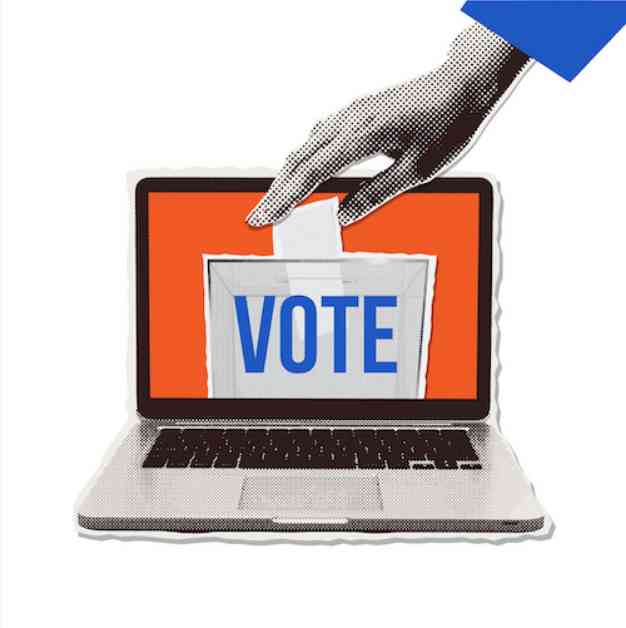Throughout 2024, Headway and Chalkbeat, a nonprofit news organization focused on education in America, have been talking to teenagers about the upcoming presidential election. They’ve asked teenagers some big questions about how they’re engaging with the election, why they’re engaged, or why not, and what issues matter to them. So far, they’ve heard from nearly 1,500 students nationwide.
One of the top questions that the teenagers asked was about the candidates’ policies. The two major candidates, Vice President Kamala Harris and former President Donald J. Trump, have very different records and plans. A New York Times reporter, Maggie Astor, contacted both candidates’ campaigns and reviewed hundreds of interviews, statements, policy papers, bills, and agency actions to build a guide to each candidate’s key policies. The guide outlines both Trump’s and Harris’ stances on major issues, such as abortion, climate change, crime, democracy, the economy, foreign policy, immigration, and the Israel-Gaza conflict.
Another important question that teenagers had was about how the electoral process works. The overall electoral process tends to follow a set order, starting with individuals interested in running for president officially declaring their candidacy. Campaigning can begin years before Election Day. The process leads to primaries and caucuses, where voters select their preferred party’s nominee. After the votes from the primaries and caucuses are tallied, each party coalesces around the winning candidate, who then announces their vice-presidential running mate. Finally, the candidates head to their party’s national convention, where they are formally nominated by the party’s state delegates.
Teenagers were also curious about why we still use the Electoral College. In 2016, Hillary Clinton won the popular vote but lost the election to Donald Trump because she lost the Electoral College. Many Americans support abolishing the Electoral College in favor of the popular vote, but the system remains politically contentious. Some hope to reduce the Electoral College’s importance without an amendment. Fifteen states and the District of Columbia have signed on to an interstate compact in which they pledge to grant their votes to the winner of the national popular vote.
The teenagers also had questions about polls and whether they can trust them. Times reporter Kaleigh Rogers explained how election polling works, emphasizing the importance of not putting too much stock in a single poll and understanding polls in aggregate through polling averages.
Another question from the teenagers was about how to tell if the information they’re consuming is accurate and unbiased. Teachers are helping students navigate a media landscape littered with misinformation by teaching strategies to find verified facts and mitigate bias. One strategy is to remember the acronym SIFT: Stop, Investigate the source, Find better coverage, and Trace claims, quotes, and media to the original context.
The teenagers also wanted to know how election results are counted. There are two main types of ballots counted during an election: in-person ballots cast at polling stations on Election Day, and absentee or mail-in ballots. Each state has established procedures for processing in-person, absentee, and mail-in ballots. Once a candidate reaches 270 electoral votes, they win the presidency.
Candidates finance their campaigns through donations from individuals, joint fundraising committees, political action committees (PACs), and super PACs. Each of these fundraising mechanisms has its own rules and contribution limits. Third-party candidates face challenges in gaining national traction in the winner-take-all system of U.S. politics, despite being competitive in state and local races.
Foreign interference in elections is a significant issue, with Russia, Iran, and China engaging in disinformation campaigns, cyberattacks, and influence operations targeting U.S. elections. These efforts aim to undermine public confidence in the U.S. electoral process and sway public opinion. Swing states play a crucial role in close presidential elections, as they have enough Electoral College votes to swing the election to one candidate or another.
These were some of the top questions asked by teenagers about the upcoming presidential election. It’s important for young people to be engaged and informed about the electoral process and the issues at stake. By asking questions and seeking answers, teenagers can better understand the complexities of the election and make informed decisions as future voters.


